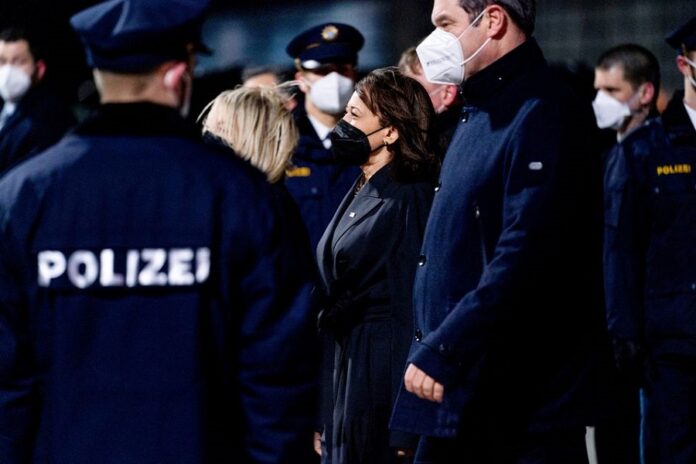World leaders converge this weekend in Germany for the annual Munich Security Conference which will be dominated by the Ukraine crisis as major Western powers warn the Kremlin looks close to launching an invasion of the former Soviet state, according to Reuters.
Ukrainian President Volodymyr Zelenskiy, U.S. Vice President Kamala Harris and NATO Secretary-General Jens Stoltenberg will be among the dignitaries attending the three-day event, known as “Davos for defence„, which kicks off on Friday at Bayerischer Hof hotel in Munich.
No Russian delegation will attend the conference, the Kremlin said last week – the first no-show in years, underscoring how much East-West relations have deteriorated.
Even at the height of the Ukrainian revolution preceding Russia’s annexation of Crimea, Russian Foreign Minister Sergei Lavrov attended. Russian Foreign Ministry spokesperson Maria Zakharova said the forum had increasingly become biased towards the West, osing its inclusivity, objectivity.
U.S. President Joe Biden said on Thursday there was now every indication Russia was planning to invade Ukraine in the next few days and was preparing a pretext to justify it, after Ukrainian forces and pro-Moscow rebels traded fire in eastern Ukraine. The Kremlin accused him of stoking tensions and threatened unspecified “military-technical measures.”
The Ukraine standoff is not the only crisis that will keep conference attendees busy. Roundtables on Saturday, the main day of events, will also address the fragile security situation in the Sahel and the revival of Iran’s 2015 nuclear deal.
Both issues have flared up this week with the announced French withdrawal of troops from Mali after almost a decade fighting Islamist insurgents and reports of a new U.S.-Iranian deal taking shape.
Conference Chairman Wolfgang Ischinger told reporters he could not recall a time when there were so many overlapping crises.
On Friday, the main program kicks off from 1230 GMT with speeches by U.N. Secretary General Antonio Guterres, German Foreign Minister Annalena Baerbock and U.S. Secretary of State Antony Blinken.
Over the weekend there will also be high-profile panels on cryptocurrency, climate change and the pandemic.
This will be Ischinger’s last time chairing the conference. After 14 years as chairman, he is set to hand over the reins to Christoph Heusgen, former Chancellor Angela Merkel’s adviser on foreign and security policy.


